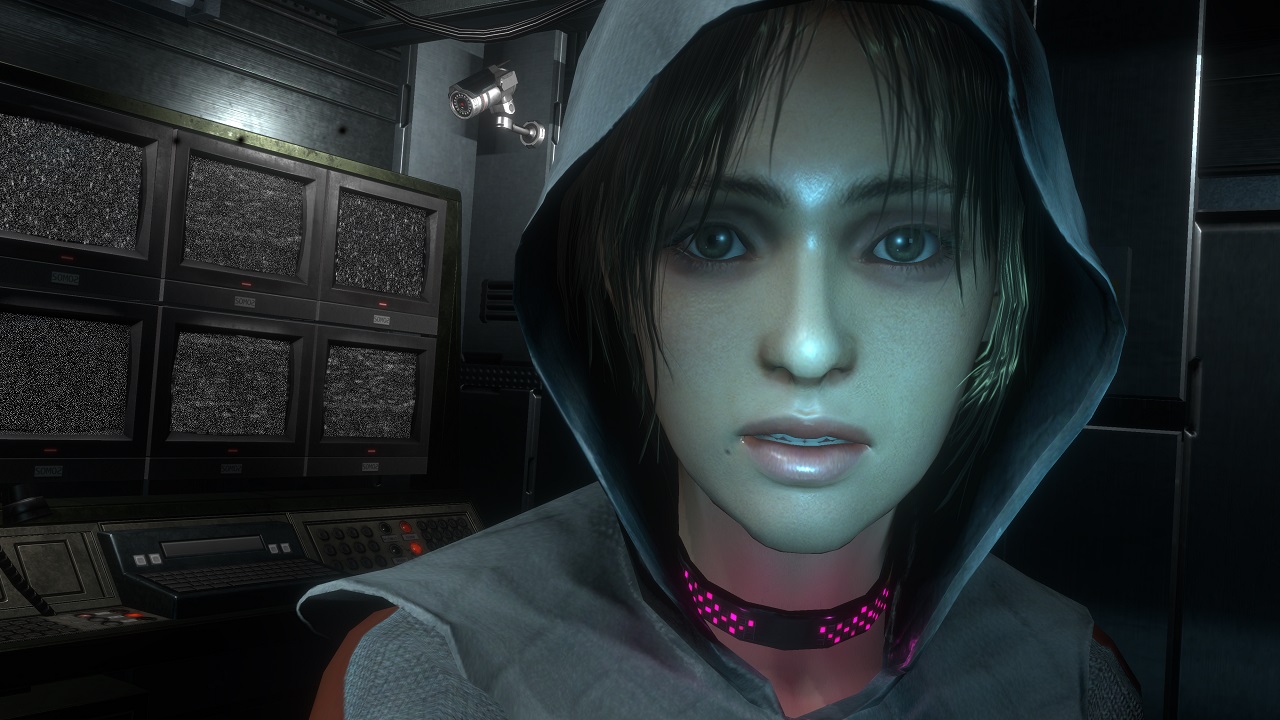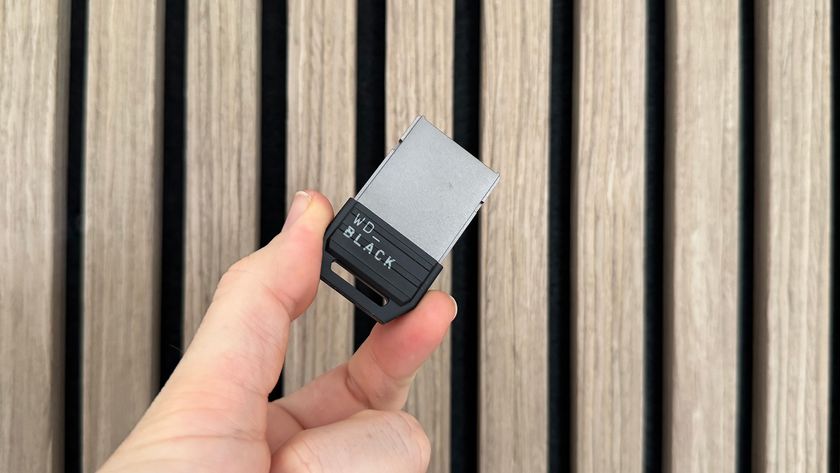12DOVE Verdict
Stellar production value and a fantastic premise can't save Republique's clumsy stealth-action or its uneven story and pacing.
Pros
- +
Unique concept and presentation
- +
Voice acting and sound design is fantastic
Cons
- -
Clumsy stealth
- -
Unsatisfying narrative and pacing
Why you can trust 12DOVE
I wanted Republique to be better. Designed by a team made up of industry veterans behind games like Metal Gear Solid 4 and Halo 4, Republique gets so much right: a high-tech dystopia that borrows liberally from classic literature (notably George Orwell's 1984), a unique control scheme blending surveillance camera hopping with combat-free stealth, fantastic production values (including voice work by MGS alums David Hayter and Jennifer Hale), and an aesthetic ripped right out of the best Konami games of the PlayStation 2 era. Conceptually, Republique sounds great. Unfortunately, none of it really comes together to form a satisfying, cohesive whole.
The game opens with the haunting ring of an anonymous phone call. You answer it and discover a woman named Hope (official designation 390-H) on the other end of the line. She's a "Pre-Cal" living in a clandestine micronation known as Metamorphosis, and she's scheduled for something called "recalibration". She urges you to help her, and without knowing who or what is going on, you're shuffled into Metamorphosis' network, able to bounce between surveillance cameras, spy on company emails and voice mail, scan objects for more information, and eventually, learn how to use the environment to distract guards in order to help Hope escape from her captors.
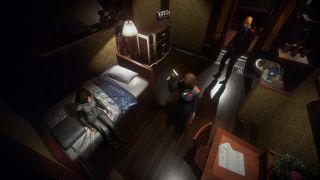
The camera system sets up an interesting dichotomy between you, the person manning the controls (wherever you're supposed to be), and Hope, the woman trying to evade capture. Because you've got access to the computer system, you can pause time to bring up a list of everything on screen that you can interact with, and hop from camera to camera to plan out the fastest, safest route through guarded areas. And because Hope has no way to fight back (other than a few get-out-of-trouble items like pepper spray or Tasers that she can pick up), you need to be methodical with your approach to each section of the map, lest she get captured and sent back to a nearby prison cell to try again.
When it works, Republique's brand of stealth can be a thrilling game of cat and mouse, of surveilling several rooms ahead to carve out the path you'll take to your objective. But Republique started out as a mobile game, where tapping on the screen would send Hope exactly where you wanted her to go. In making the transition to consoles, the game maps her movement to the left analog stick, and navigating her through Metamorphosis is now way clumsier than it should be. She sticks to cover too eagerly, and like Resident Evil and other games with fixed camera angles, it can be very disorienting when the camera shifts as you enter a new room (more often than not after lengthy seconds-long load times). It helps that the guards are laughably stupid, hiding spots are everywhere, and defensive items are plentiful, but ultimately Republique’s stealth is unsatisfying and doesn't evolve much over the course of its five episodes, making it something you suffer through to get to the story bits - which come with their own set of problems.
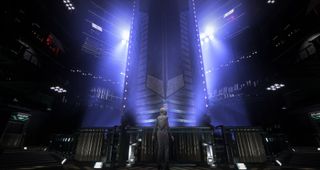
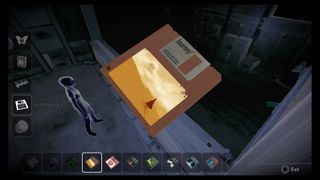
As you explore Metamorphosis, you'll discover that guards often carry items while they patrol their rounds. Picking their pockets will allow you to snag what they've got, and sometimes that means finding a floppy disk featuring artwork from one of many current real-life indie and big-budget video games. You won't be able to play them, obviously, but you'll get a colorful description from one of the guards who's helping Hope escape. It's an interesting touch, and one that encourages you to approach your stealth with some out-of-the-box thinking. And of course, there are a few Trophies in store if you find them all.
When you're not avoiding guards and solving light puzzles, you're scanning everything you can find in the environment because this is where 90 percent of Republique's story lives. Each poster, discarded object, point of interest, and collectible will activate a brief recording filling you in on the history of Metamorphosis and its people. Over time, you'll piece together a larger story about the tyrannical Overseer Treglazov, an ironically-named Librarian who reluctantly bans books, Daniel Zager's failed revolution, and Hope's role in everything - or, you'll skip them, and you won't. These recordings are wonderfully acted, each one its own miniature radio play, but I wish more of this information was conveyed through direct conversations. Stopping to scan everything in a room really bogs the pacing down, and ensures that players who don't take the time to scour Republique's environments to listen to absolutely everything will likely miss incredibly vital information.
But even with all these recordings, the picture Republique paints is uneven and somewhat incomplete, and much of that is due in large part to an episodic structure that was released sporadically over the course of four years. Its story starts strong, drip-feeding you enough detail to keep you moving forward while still keeping things properly mysterious. By the time you hit episode four, you're hoping for at least some of its secrets to be answered - but those answers don't come here, as the episode instead takes the game in a completely incongruous, horror-inspired direction, providing even more questions than before. It feels completely out of place, disabling old standby tools (like your trusty map) while introducing new mechanics, characters, and bizarre story beats for no satisfying reason, then discarding them entirely at the start of the game's fifth and final chapter.
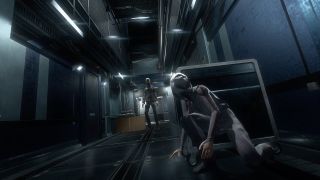
Even worse, the finale feels rushed, informing you of its game-changing plot twist then funnelling you through a few final challenges before stumbling through its head-scratchingly disappointing conclusion. Republique spends so much of its time building its world through ancillary details that it almost forgets that there was a plot in all of this, and it frantically starts shuffling puzzle pieces around at the very last moment to try to make everything fit together. Had answers been portioned out more evenly during the opening chapters, and had Republique spent more time fleshing out those answers with cutscenes or dialog, the game's biggest revelations would resonate, but instead land with a shrug.
Republique is filled with interesting ideas about the very real fear of modern-day fascism and the omnipresence of privacy-killing technology, concepts that are more often found in literature than video games, and the way it approaches its themes through the security cameras of a dystopian nightmare is admirable. But all the interesting ideas in the world are moot if the game can't make a satisfying experience out of them, and sadly, Republique fails to stick the landing.
This game was reviewed on PS4.
More info
| Genre | Adventure |
| Platform | "PS4","iPad","iPhone" |
| US censor rating | "Mature","","" |
| UK censor rating | "16+","","" |
| Release date | 1 January 1970 (US), 1 January 1970 (UK) |
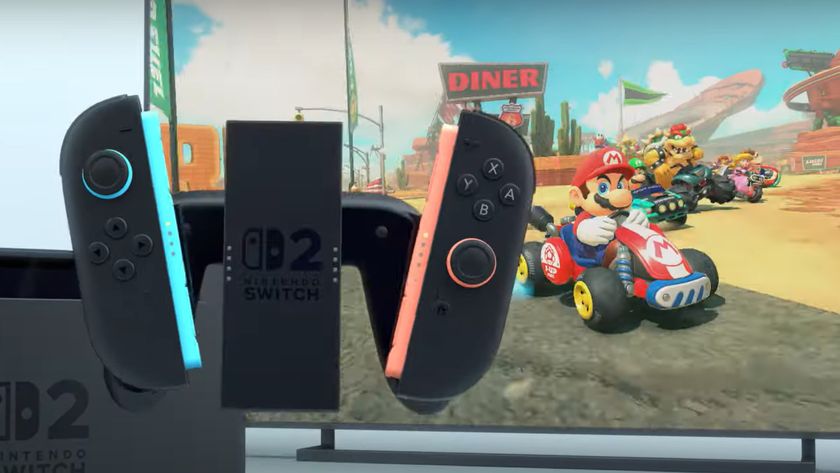
Ex Nintendo PR managers say the Switch 2 generation is likely to see the retirement of "several of the major developers at Nintendo who we have known for 40 something years"
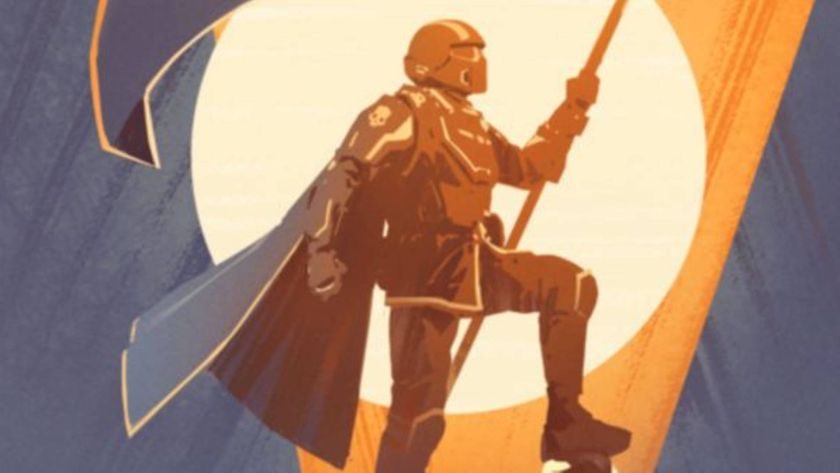
Helldivers 2 CEO says industry layoffs have seen "very little accountability" from executives who "let go of one third of the company because you made stupid decisions"

Spider-Man: Brand New Day - How Peter Parker and Mary Jane's break up led to one of the wall-crawler's most transformative comic eras
